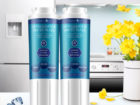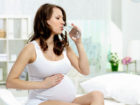Take a look at a glass of water, it looks refreshing, hydrating and invaluable to your survival. Before you take a sip, how do you know that the water is free from disease-causing organisms?
Water Quality in US
America has one of the safest water supplies in the world. If you are among the 286 million Americans who get their water from a community water system, your tap water is regulated by the United States Environmental Protection Agency (EPA).
Drinking water varies from place to place, depending on the condition of the source water from which it is drawn and the treatment it receives, but it must meet EPA regulations.
Even though our tap water supplies are considered to be one of the safest in the world, water pollution can still occur. There are many sources of contamination, including:
- Sewage releases
- Naturally occurring chemicals and minerals (for example, arsenic, radon, uranium)
- Local land use practices (for example, fertilizers, pesticides, livestock, concentrated feeding operations)
- Manufacturing processes (for example, heavy metals, cyanide)
- Malfunctioning on-site wastewater treatment systems (for example, septic systems)
In addition, drinking water which is not properly treated or which travels through an improperly maintained distribution system (for example, the piping system) may also create an environment for water contamination.
The presence of certain contaminants in our water can lead to health issues, including gastrointestinal illness, reproductive problems, and neurological disorders. Infants, young children, pregnant women, the elderly, and immunocompromised persons may be especially susceptible to illness.
How to Know Your Tap Water is Safe or Not?
Environmental Working Group (EWG), an American non-profit and independent advocacy organization in Washington, D.C., focuses on public health and environmental issues.
The EWG released a Tap Water Database on July 26th, 2017. The database contains results from testing results by EPA on drinking water from 2010 to 2015, which includes tests on water from nearly 50,000 water utilities in all 50 states and Washington, D.C. Plus, the EWG incorporated results from water tests done by state agencies.
In addition, It is a researchable database which allows users in the US to enter either their ZIP code or their local utility’s name to learn what’s in their tap water. Whether you’re wondering if your water is safe or just what that weird smell is, the database could help.
Common Solutions to Water Contamination
X Will boiling purify drinking water and remove chemicals? – No. Boiling water might be one of the simplest purification methods, but it is definitely not the most effective. It can remove viruses and bacteria from your water, but it does not rid water of harmful chemicals and metals like lead, arsenic, mercury, chromium 6 or brium.
X Will a water softener eliminate all water pollutants? – No. Water softeners are supposed to remove minerals from water which cause hardness and scale. Although a water softener may help to make drinking water taste better, it can not remove pesticide, metal, pharmaceutical byproducts to make water cleaner or safer.
X Will bottled water be free from water contamination? – No. A survey of 173 unique bottled water products from the EWG found that, 18% of bottled waters fail to list the location of their source, and 32% disclose nothing about the treatment or purity of the water.
✔️ Will carbon water filters be the most effective water filtration system available? – Yes. Activated carbon filters are most effective in removing organic contaminants from water. When water passes through the filter, the carbon particles attract and remove contaminants including dissolved substances, heavy metals and chlorine. Also, WEG recommends that you drink filtered tap water. You’ll save money and drink water which is purer than tap water.







… [Trackback]
[…] Read More Information here on that Topic: blog.clatterans.com/how-to/water-conditions-in-the-us-and-solutions-to-water-contamination/ […]
… [Trackback]
[…] Read More on that Topic: blog.clatterans.com/how-to/water-conditions-in-the-us-and-solutions-to-water-contamination/ […]
… [Trackback]
[…] Here you will find 7263 more Information to that Topic: blog.clatterans.com/how-to/water-conditions-in-the-us-and-solutions-to-water-contamination/ […]
… [Trackback]
[…] Read More on on that Topic: blog.clatterans.com/how-to/water-conditions-in-the-us-and-solutions-to-water-contamination/ […]
… [Trackback]
[…] Information on that Topic: blog.clatterans.com/how-to/water-conditions-in-the-us-and-solutions-to-water-contamination/ […]
… [Trackback]
[…] Read More Information here to that Topic: blog.clatterans.com/how-to/water-conditions-in-the-us-and-solutions-to-water-contamination/ […]
… [Trackback]
[…] Information on that Topic: blog.clatterans.com/how-to/water-conditions-in-the-us-and-solutions-to-water-contamination/ […]
… [Trackback]
[…] Read More on that Topic: blog.clatterans.com/how-to/water-conditions-in-the-us-and-solutions-to-water-contamination/ […]
… [Trackback]
[…] Find More to that Topic: blog.clatterans.com/how-to/water-conditions-in-the-us-and-solutions-to-water-contamination/ […]
… [Trackback]
[…] Read More on on that Topic: blog.clatterans.com/how-to/water-conditions-in-the-us-and-solutions-to-water-contamination/ […]
… [Trackback]
[…] Here you will find 85722 additional Info to that Topic: blog.clatterans.com/how-to/water-conditions-in-the-us-and-solutions-to-water-contamination/ […]
… [Trackback]
[…] Read More on that Topic: blog.clatterans.com/how-to/water-conditions-in-the-us-and-solutions-to-water-contamination/ […]
… [Trackback]
[…] Find More on on that Topic: blog.clatterans.com/how-to/water-conditions-in-the-us-and-solutions-to-water-contamination/ […]
… [Trackback]
[…] Find More on that Topic: blog.clatterans.com/how-to/water-conditions-in-the-us-and-solutions-to-water-contamination/ […]
… [Trackback]
[…] Read More on that Topic: blog.clatterans.com/how-to/water-conditions-in-the-us-and-solutions-to-water-contamination/ […]
… [Trackback]
[…] Find More Information here on that Topic: blog.clatterans.com/how-to/water-conditions-in-the-us-and-solutions-to-water-contamination/ […]
… [Trackback]
[…] Find More on on that Topic: blog.clatterans.com/how-to/water-conditions-in-the-us-and-solutions-to-water-contamination/ […]
[…] Read 37759 More here on that Topic: blog.clatterans.com/how-to/water-conditions-in-the-us-and-soluti… […]
… [Trackback]
[…] Find More here to that Topic: blog.clatterans.com/how-to/water-conditions-in-the-us-and-solutions-to-water-contamination/ […]
… [Trackback]
[…] Information to that Topic: blog.clatterans.com/how-to/water-conditions-in-the-us-and-solutions-to-water-contamination/ […]
… [Trackback]
[…] There you can find 41826 more Information to that Topic: blog.clatterans.com/how-to/water-conditions-in-the-us-and-solutions-to-water-contamination/ […]
… [Trackback]
[…] There you can find 53530 more Info on that Topic: blog.clatterans.com/how-to/water-conditions-in-the-us-and-solutions-to-water-contamination/ […]
… [Trackback]
[…] Find More on to that Topic: blog.clatterans.com/how-to/water-conditions-in-the-us-and-solutions-to-water-contamination/ […]
… [Trackback]
[…] Info on that Topic: blog.clatterans.com/how-to/water-conditions-in-the-us-and-solutions-to-water-contamination/ […]
… [Trackback]
[…] Read More here to that Topic: blog.clatterans.com/how-to/water-conditions-in-the-us-and-solutions-to-water-contamination/ […]
… [Trackback]
[…] Read More on on that Topic: blog.clatterans.com/how-to/water-conditions-in-the-us-and-solutions-to-water-contamination/ […]
… [Trackback]
[…] Read More Information here to that Topic: blog.clatterans.com/how-to/water-conditions-in-the-us-and-solutions-to-water-contamination/ […]
… [Trackback]
[…] Find More Info here to that Topic: blog.clatterans.com/how-to/water-conditions-in-the-us-and-solutions-to-water-contamination/ […]
… [Trackback]
[…] Read More here on that Topic: blog.clatterans.com/how-to/water-conditions-in-the-us-and-solutions-to-water-contamination/ […]
… [Trackback]
[…] Read More Information here to that Topic: blog.clatterans.com/how-to/water-conditions-in-the-us-and-solutions-to-water-contamination/ […]
… [Trackback]
[…] Find More Information here to that Topic: blog.clatterans.com/how-to/water-conditions-in-the-us-and-solutions-to-water-contamination/ […]